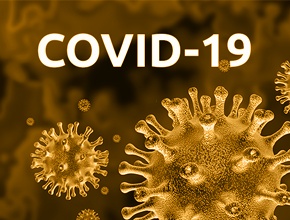Nirmatrelvir in nonhospitalized adults at high risk of severe COVID-19
Background: Nirmatrelvir, when combined with the pharmacologic enhancer ritonavir, is an oral antiviral drug that may limit disease progression and severity in patients with symptomatic coronavirus disease 2019 (COVID-19), with the potential to reduce hospitalizations.
Methods: This randomized controlled trial recruited symptomatic, unvaccinated, nonhospitalized adults at high risk of progression to severe COVID-19, who were allocated in a double-blind manner to receive an active drug (nirmatrelvir 300 mg plus ritonavir 100 mg) or placebo twice daily for 5 days. The main outcomes were COVID-19–related hospitalization, death from any cause, and safety over a 28-day period.
Results: There were 2246 patients studied: 1120 patients in the nirmatrelvir plus ritonavir group and 1126 in the placebo group. In the final analysis of 1379 patients, those taking nirmatrelvir plus ritonavir had an 88.9% lower relative risk of hospitalization or death (0.7% vs 6.5%, absolute difference of –5.81 percentage points; 95% CI, –7.78 to –3.84). There were 13 deaths, all occurring in the placebo group. The incidence of adverse events was similar in both groups (any adverse events, 22.6% vs 23.9%; serious adverse events 1.6% vs 6.6%). Dysgeusia (5.6% vs 0.3%) and diarrhea (3.1% vs 1.6%) occurred more frequently in the nirmatrelvir plus ritonavir than in the placebo group.
Conclusions: The authors concluded that in nonhospitalized, nonvaccinated patients with symptomatic COVID-19, treatment with nirmatrelvir plus ritonavir was effective, associated with an 89% reduction in disease progression leading to hospitalization or death, and appeared to be safe.
McMaster editors’ comment: Nirmatrelvir plus ritonavir (Paxlovid) should be considered in nonhospitalized, symptomatic COVID-19 patients with the following caveats: (1) it should be used in patients in whom the onset of symptoms occurred within 5 days and who have comorbidities—based on clinical judgement—that place them at increased risk of disease progression; (2) the reported results apply to nonvaccinated patients, and the absolute effect is likely smaller among those previously vaccinated; (3) the ritonavir component of Paxlovid is associated with multiple potential drug-drug interactions, including with selected anticoagulants, statins, and cardiac drugs (eg, beta-blockers, calcium channel blockers); in such patients, an individualized approach to management should be considered, which may include withholding an agent (eg, statin) or switching drugs (eg, rivaroxaban to edoxaban) for a 7-day period after initiation of Paxlovid.
 English
English
 Español
Español
 українська
українська







